
FOR FIVE DAYS I’ve been travelling along the straight line of the 1325km-long Anne Beadell Highway. This somewhat grandly named – but deteriorating – bush track stretches from the opal town of Coober Pedy in South Australia to Laverton in the Western Australian Goldfields. Along the way it traverses the Great Victoria Desert (GVD), which straddles the border between SA and WA. With a staggering size of more than 400,000sq.km – about twice the size of Great Britain – the GVD is Australia’s largest desert, covering about 5 per cent of the continent.
The term “desert” usually connotes images of dry, barren landscapes, recalling harsh and desolate wastelands. But so far these clichés don’t relate. The heavily corrugated and intermittently washed-out Anne Beadell leads through surprisingly dense vegetation, contradicting the common wisdom that deserts are characterised by a lack of plants, notably trees.
Andrew Dwyer, owner of the Diamantina Touring Company, with whom I’m travelling, has been roaming Australia’s deserts for 36 years. The GVD, named after Queen Victoria in 1875, is his favourite. “The space, the solitude, the pristine nature, the location, and the fact that it is in between the [ranges of] Central Australia to the north and the Nullarbor to the south” make the GVD a very special place for him. For this experienced desert veteran, however, the GVD does not seem like a typical desert. “It’s an arid region,” he says, adding that dictionaries define deserts as “dry and lifeless” places. “There is nothing dry and lifeless about [this],” he adds.
Denne historien er fra March - April 2024-utgaven av Australian Geographic Magazine.
Start din 7-dagers gratis prøveperiode på Magzter GOLD for å få tilgang til tusenvis av utvalgte premiumhistorier og 9000+ magasiner og aviser.
Allerede abonnent ? Logg på
Denne historien er fra March - April 2024-utgaven av Australian Geographic Magazine.
Start din 7-dagers gratis prøveperiode på Magzter GOLD for å få tilgang til tusenvis av utvalgte premiumhistorier og 9000+ magasiner og aviser.
Allerede abonnent? Logg på
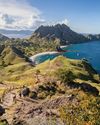
SULAWESI SENSATIONS
There are worlds within worlds and marvels untold waiting to be experienced on Indonesia's remote islands.
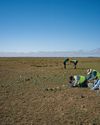
SEARCHING FOR AUSSIE DINOSAURS
Our understanding of where to find ancient life in Australia has been turned on its head by a new appreciation of the country's geology. Now the world is looking to our vast outback as the latest hotspot to locate fossils.
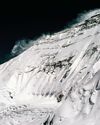
THE HARDEST NIGHT
The first Australian ascent of Mt Everest in 1984 is one of the great feats of mountaineering. Climbed by a small team semi-alpine style, with no bottled oxygen, via the Great (Norton) Couloir, it remains unrepeated 40 years later.
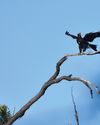
WEDGE-TAILED WONDER
The chance discovery of an eagle nest leads to an extended vigil observing normally hidden behaviours of one of nature's supreme winged marvels.
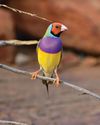
BURDENED BY BEAUTY
Northern Australia's Gouldian finch survives in huge numbers in cages around the world, but its wild population continues to struggle.
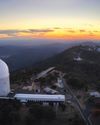
A TELESCOPE FOR A GOLDEN AGE
After a stellar 50 years as one of the country's major scientific assets, the AAT continues to play a major role in keeping Australian astronomy on the world stage.
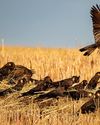
COCKY WHISPERING AT COOMALLO CREEK
This patch of remnant bush on the edge of the West Australian wheatbelt is a place loved by one of Australia's rarest bird species and the man who has studied the site for more than 50 years.

A PIONEERING PAIR
Louisa Atkinson and her mother, Charlotte, were among Australia's earliest authors, and pioneers in women's rights.
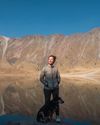
THE LONGEST WALK
Lucy Barnard is walking from Argentina to Alaska -the length of the Americas - on an extraordinary journey of endurance and adventure.
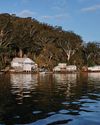
SECLUDED, BUT NOT ALONE
In an era of heightened social isolation, where many of us lead lonely lives, Dangar Island offers the chance to be part of a supportive, connected community.